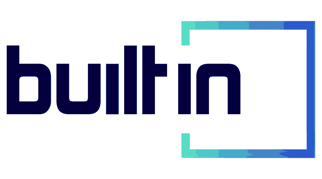
Recently, Google released a significant local search algorithm update that’s being dubbed “Pigeon.” The update aims to provide more accurate and relevant local search results by digging deeper into Google’s web search capabilities. Released without a formal announcement, Pigeon is causing some surprisingly big waves in the local search world.

The update’s nickname comes from the notion that pigeons tend to fly home – and what could be more fitting for a local search algorithm? Pigeon utilizes a number of ranking signals in order to display the best results. According to Google, the update also marks an improvement in location and distance ranking parameters.
How Google’s Pigeon Rank Algorithm Affected Local Search
So what does Pigeon update mean for your business? It will take some time to determine if Pigeon is as important as the Panda or Penguin algorithms, so it’s a bit early to tell exactly how you or your customers will be affected. However, the noticeable impacts on local search rankings might mean an increase or a decrease in your site referrals and leads.
What we do know is that Pigeon resulted in widespread local search changes (some of them quite surprising), such as:
-
- Increased relevance of search results where geo-modifiers are used
- A disparity in rank between the new Google Maps view and the old view
- Fluctuations in local ranking orders across the board
It’s likely that Pigeon was released with a few particular intentions in mind. First and foremost, it seems the algorithm change levels the playing field for directories, as Pigeon temporarily reverses the trend of the “Google-only” experience.
Other search traffic aggregators such as Yelp have, in recent years, taken issue with Google’s seemingly biased search algorithms. This update has caused a noticeable change, with rankings apparently favoring Yelp, Yellow Pages, and other competitors (for the time being) as opposed to the local listing pack results. It’s probable that Google released Pigeon as a way to start evening the playing field, and in the process local search is being somewhat devalued.
Pigeon also brings better integration with Google databases for improved location recognition. This means significant impacts on local business listings and local SEO. In any case, these changes should improve the accuracy of local results and deliver a better search experience for users. It’s a good idea at this point to make sure you are monitoring your local rankings in order to measure and adjust to Pigeon algorithm changes.
Want to learn how your local business can still rank? Check out our ebook with all of the latest and greatest strategies in SEO.
*Since this article was originally published, we have seen the effects of this update. Read more, here.

The BFO Team
Here at BFO, we're always striving to bring you the latest and greatest in digital marketing insights and education. We're not ones to brag, but we've been lucky enough to be featured in all sorts of fancy publications and media outlets, strutting our stuff and showing off our industry expertise.
CATEGORIES
SUBSCRIBE TO OUR BLOG
Stay up to date with the latest industry best practices in digital marketing!























.png?width=339&height=179&name=Webinar%20Banner%20(1).png)



.png?width=339&height=179&name=July%20Webinar%20(Newsletter).png)

.png?width=339&height=179&name=Webinar%20Banner-April-02%20(1).png)
%20(4).png?width=339&height=179&name=Webinar%20Banner-May-02%20(1)%20(4).png)




.png?width=339&height=179&name=March%202023%20Webinar%20Ad%20(autoresponder).png)










.png?width=339&height=179&name=2025%20Paid%20Media%20(1200%20x%20628%20px).png)





















































.png?width=339&height=179&name=2026%20Paid%20Media%20Ad%20Specs%20(Twitter%20Post).png)

